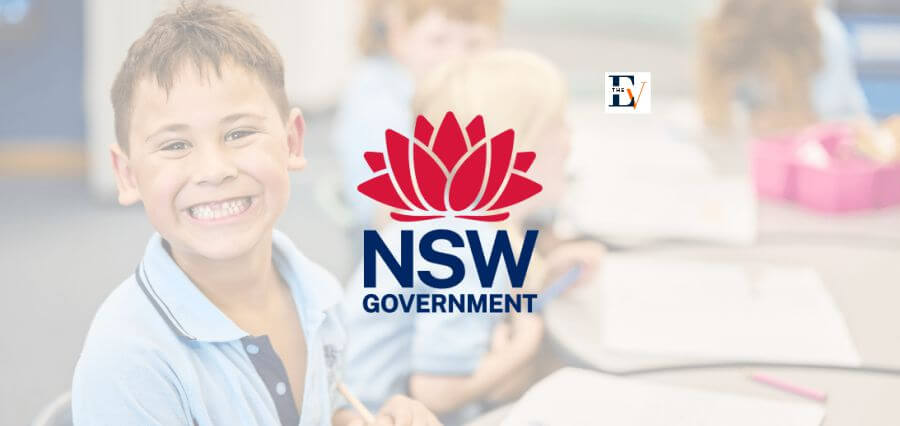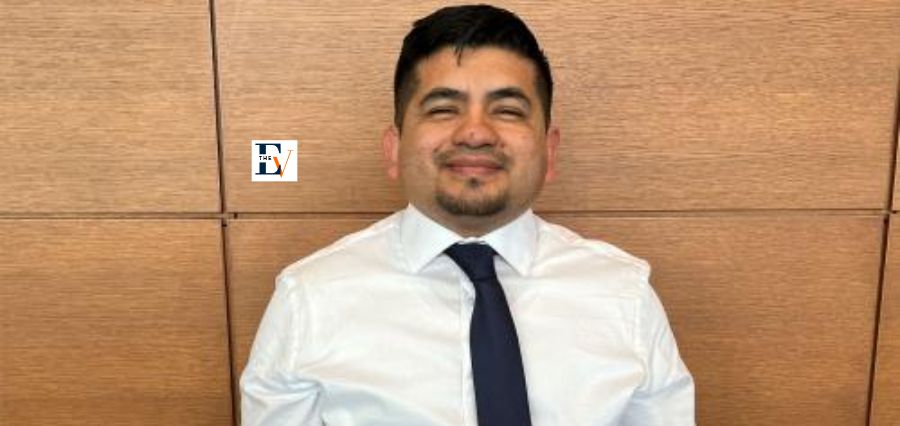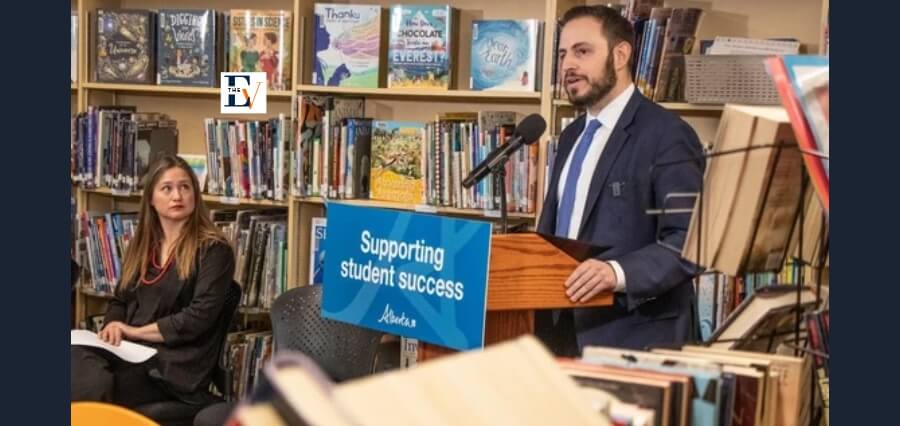The progression of human evolution has witnessed many roller-coaster rides. And inside this process, a prominent attribute that kept human society at a progressive edge has been unlearning the rudimentary and learning upcoming advancement.
This art of progressing ahead has been crucial for social development, and the best site that nurtures this phenomenon is school. Being a hub of education and innovations, schools have always been an all-time favorite to seek knowledge and implement these learnings in the professional arena. Such merits of schools are widely attributed to their academic ecosystem.
And, to incorporate holistic learning while maintaining the balance between education, sports, and cultural growth, it is the dynamic Principals that nurture students, strengthen Teachers, innovate novel Pedagogies, and drive quality education to fulfill the demand of the future. For such visionary principals and educational leaders, it becomes mandatory to highlight them at the forefront of the global spotlight.
As the saying goes, “A good student is influenced by a good teacher, and good schools are influenced by a great principal,” this stands true when one looks at the outstanding Principal of Nahar International School, Mumbai.
Starting her journey in the late 90s, Mrs. Vandana Arora has always been a true believer in the balanced growth of students. Be it the academic, sports, spiritual or metaphysical paradigm. Mrs. Vandana has always been contributing to nurturing students and facilitating them to have a broader outlook.
Let’s look at her journey and learn the leadership skills that she has incorporated to blossom Nahar International into its huge success today!
A Story of a Quarter Century
Mrs. Arora began her career as a teacher in humanities in 1997, and since then, it has been more than 25 years for her as an educator. As a teacher, she always tried to impart her best teachings. Moving to Tridha Mumbai-based school as a head, she learned about the Rudolf Steiner philosophy. Her thoughts aligned with the philosophy that believes in the idea that a child’s moral, spiritual and creative sides need as much attention as their intellect.
She aligned the teaching curriculum as per the Cambridge and IBDP requirements to pace up with the exposure to global education. Continuing teaching, she very well understood the steep difference between the Indian and International Education systems.
Passionate about building a progressive child-centric school as the Founder Principal of Nahar International School, Mrs. Arora is focused on building up an academic program based on the amalgamation of the child’s psychological needs and the assessment needs of the board.
Instilling Progress with a Visionary Belief System
As a teacher of humanities, she believed in the humanitarian approach attached to education. Her teaching belief starts from thinking that understanding concepts and making them relevant in day-to-day life is important for children rather than just acquiring grades. The perspective of hers led to the foundation principles of Nahar International School.
Her vision is to make students globally responsible citizens through self-discovery, which is an effort that could be seen in the school’s curriculum. As a proud Principal, she says, “Every student of mine comes to school happily, and they also enjoy every time, all the time which they spend in school. That was the larger objective when I started.”
Believing that intellectual growth cannot be disconnected from that of social, emotional, and physical growth, the school follows attributes such as Reverence, Responsibility, Fairness, Courage, Empathy, Perseverance, Resilience, Initiative taking, and Collaboration. With these attributes, the institution believes that every child is a gift of God with unique strengths and human possibilities. The school philosophy says, “Each tender mind is filled with an amazing sense of curiosity, boundless energy to explore, an immense capacity to learn, and the ability to absorb all that is in the environment around.”
NIS gives its students an edge in every sphere of life where they are motivated to resonate with optimism and create something phenomenal out of their lives.
NIS: Advancing Pedagogically
NIS has formed a curriculum that can offer education to students in the most engaging and fascinating ways. The school never excludes any extracurricular activities from the curriculum, as it firmly believes that each activity is crucial for the physical and mental development of a child.
The pedagogical approach of the school is project-based model of learning. NIS began this model in the Primary grades and having seen its positive outcomes, went ahead with its plan for applying Project-based learning from Primary to Middle School. The syllabus is based on the Curriculum Frameworks. However, the themes chosen would guide the alignment of these skills and topics in each grade and each grade and in each term. The salient feature of this model is the teaching of skills and content while placing them in a context that is relevant and current.
Challenging the Adversities with a Performance Perspective
Describing her personal experience regarding the challenges that she usually faces, Vandana says that the child-centric approach is quite misunderstood, and she finds it challenging to train people to know a child’s perspective.
To her, it is quite important to understand that a student’s perspective should be to understand better, not to perform better, which is quite misinterpreted. She says, “The performance perspective, giving importance to outcome versus looking at the process and giving importance to process, is a huge paradigm shift in the system of education in India which we are facing. So that is a challenge for educators like its teachers, your team members, and moving into the parent body to make them also understand that the needs of a child need to be first understood and worked upon before we start expecting a child to perform.”
Preparing for Exposure
Mrs. Arora has included the subjects like global perspective, being introduced right from grade 1 to grade 12. NIS students learn the subject, where they understand perspectives and people are different. They do enter online exchanges with Schools based in abroad. This helps the student pool with acceptance towards inclusivity in diversity.
The school looks at various kinds of exchange programs within the country as well as outside. However, more than that, it believes that ‘one becomes only global—when on a global perspective, one becomes global when one connects to local.’
Therefore, it does not believe in them connecting to first, their groups before they grow up and be a local citizen. Mrs. Arora quotes, “You can’t be a global citizen if you’re not a local citizen.” The online learning experience is as engaging and enriching as possible.
The rapid switch to online learning at the end of the academic year 2019-2020 left little time for teachers to redesign their syllabi for an online format, and the priority was ensuring that students could finish out their academic year.
However, the teaching fraternity of NIS has worked hard during the lockdown to upskill about e-learning platforms; they have conducted continuous collaborative meetings online to ensure homogenous lesson planning and have identified new ways of engaging students and designing interesting online learning activities for the coming academic year.
These have been designed keeping in mind the requirements of each age group. This learner-initiated and teacher-guided process of schooling is how learning will take place in the coming months.
The Motivating Factor
As an educator, the most motivating factor for Vandana is to see the young generation perform and do better. Seeing her children as better communicators, better thinkers, and better aspirants give her an immense amount of joy. She shares with pride, “And as the school grew, we saw many of our children getting admissions in prestigious institutions, many of them coming back and sharing their journey with us. It is the biggest motivator for any educator.”
Knowing the Pupil Looking at things differently, Vandana made sure to keep in mind students’ motivation as her school’s primary goal, which generates interest in students’ hearts. One of the values which is very important for NIS and Vandana and which they try to integrate is equalitarianism.
She understands that the fear of judgment discourages students’ participation, and with a lot of competition around, she does not want her students to feel it. The students until the fifth grade in NIS are only groomed in a nonjudgmental environment and are encouraged.
Pearls of Wisdom
Advising her students, Mrs. Arora urges them to explore and ask questions. She says, “They should always be willing to ask questions. They should always be willing to explore to find the answer to their question and should also be looking at doing something which will make them happy and will give them skills so that they can contribute to the larger society.”
“Don’t learn for the sake of performance, learn for the sake of learning. Don’t do anything for the sake of making someone happy but learn skills so that you could contribute more. When you contribute more, you automatically make everyone happy and yourself also,” notes Mrs. Arora.
Taking about educators, Vandana feels that an educator just has to give; they cannot expect back. She says a true educator is happy after seeing the success of their students, and that encourages them.
Envisioning the Future
Unveiling a glimpse of her plans, she desires to see students at her school grow with no mental health issues. She wants her students to be able to understand the difference between being ethical and being smart as she thinks most of the young generation wants to be smart and fast, and they are losing the most important aspect, which is principles, the core has to be intact before one move further.






